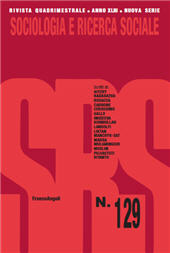The impact of demographic factors on national security
102-125 p.
The article discusses the demographic factors that have the greatest impact on national security. The shift in the values of modern society has changed the emphasis in the main factors characterizing national security. The population ageing, increased health care costs and pension payments, as well as the growing economic burden on people of working age, give reasons to consider the demographic component as the main one in the system of national security. The purpose of the study is to quantify the impact of individual demographic factors on national security indexes. The authors compared the main demographic indicators of the Russian Federation and developed countries. Based on the data for developed countries the threshold values of the main demographic indicators were determined. Regression analysis to determine the dynamics of demographic indicators for the Russian Federation was applied, and a generalized index of the demographic component of national security was determined.
In addition, elasticity coefficients were calculated to determine the impact of individual demographic indicators. The authors found that previously overlooked parameters of demographic security indicators, such as the share of the older citizens in the total population and the demographic burden of the elder population, are important in the national security assessment. The recommendations on improving the demographic component of Russia's national security were proposed. For the Russian Federation, all indicators are in the critical range (below the minimum threshold value). [Publisher's text].
Forma parte de
Sociologia e ricerca sociale : 129, 3, 2022-
Artículos del mismo número (disponibles individualmente)
-
Información
Código DOI: 10.3280/SR2022-129005
ISSN: 1971-8446
MATERIAS


